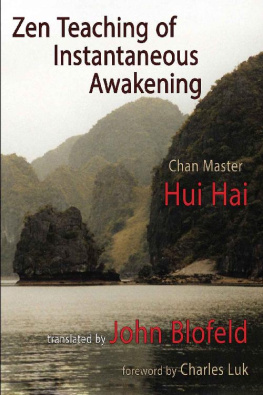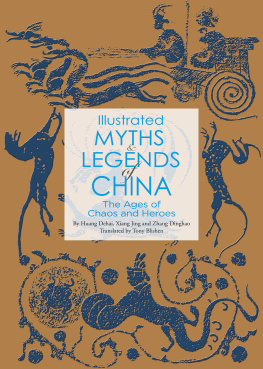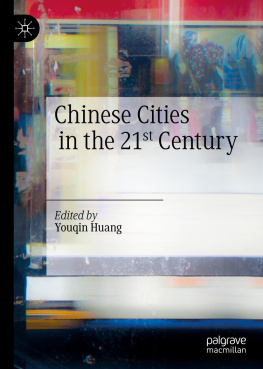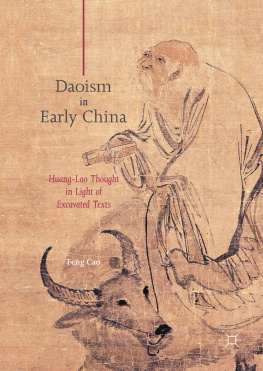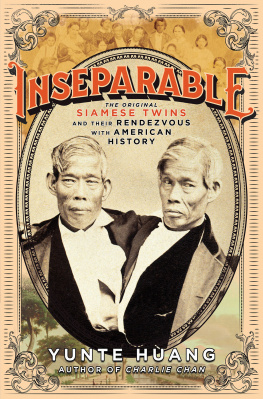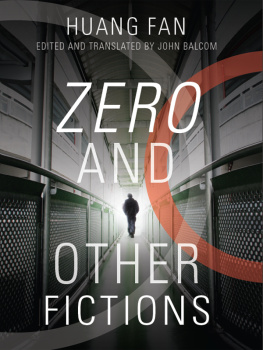THE ZEN TEACHING OF HUANG PO
The Zen Teaching of Huang Po
ON THE TRANSMISSION OF MIND
Being the Teaching of the Zen Master Huang Po as recorded by the scholar Pei Hsiu of the Tang Dynasty
Rendered into English by
JOHN BLOFELD
(Chu Chan)
A complete translation of the Huang Po Chuan Hsiu Fa Yao, including the previously unpublished Wan Ling Record containing dialogues, sermons, and anecdotes

Copyright 1958 by John Blofeld
All rights reserved. No part of this book may be reproduced in any form or by any electronic or mechanical means, including information storage and retrieval systems, without permission in writing from the publisher, except by a reviewer, who may quote brief passages in a review. Scanning, uploading, and electronic distribution of this book or the facilitation of such without the permission of the publisher is prohibited. Please purchase only authorized electronic editions, and do not participate in or encourage electronic piracy of copyrighted materials. Your support of the authors rights is appreciated. Any member of educational institutions wishing to photocopy part or all of the work for classroom use, or anthology, should send inquiries to Grove/Atlantic, Inc., 841 Broadway, New York, NY 10003 orpermissions@groveatlantic.com.
Printed in the United States of America
Library of Congress Catalog Card Number 59-12215
ebook ISBN-13: 978-0-8021-9589-0
Grove Press
an imprint of Grove/Atlantic, Inc.
841 Broadway
New York, NY 10003
Distributed by Publishers Group West
www.groveatlantic.com
CONTENTS
PART ONE
The Chn Chou Record (Sermons and Dialogues)
PART TWO
The Wan Ling Record (Dialogues, Sermons and Anecdotes)
TRANSLATORS INTRODUCTION
THE TEXT
The present volume is a complete translation of the Huang Po Chuan Hsin Fa Yao, a ninth-century Chinese Buddhist text, much of which now appears in English for the first time. It contains a concise account of the sublime teachings of a great Master of the Dhyna Sect, to which, in accordance with current Western practice, I shall henceforth refer by its Japanese name of Zen. Zen is often regarded as a uniquely Far Eastern development of Buddhism, but Zen followers claim that their Doctrine stems directly from Gautama Buddha himself. This text, which is one of the principle Zen works, follows closely the teachings proclaimed in the Diamond Stra or Jewel of Transcendental Wisdom, which has been ably translated by Arnold Price and published by the Buddhist Society, London. It is also close in spirit to The Stra of Wei Lang (Hui Nng), another of the Buddhist Societys publications. But I have been deeply struck by the astonishing similarity to our text in spirit and terminology of the not-so-Far Eastern, eighth-century Tibetan Book of the Great Liberation, edited by Evans-Wentz and published by the Oxford University Press. In my opinion, these four books are among the most brilliant expositions of the highest Wisdom which have so far appeared in our language; and, of them all, the present text and the Tibetan Book of the Great Liberation present the Doctrine in a form best suited to the needs of Western readers.
THE PLACE OF THIS TEXT IN BUDDHISM
Zen is a branch of the great Mahyna School prevailing in China and the more northerly countries of Eastern Asia, so its teachings are not accepted as orthodox Buddhism by followers of Hnayna or the Southern School. However, Western scholars are no longer unanimous in regarding Hnayna as being the sole guardian of the truths proclaimed by Buddhisms illustrious Founder, despite the early date of Hnaynas principal texts. The division into two schools took place some two thousand years ago in Northern India, since when Mahynists have accepted the teachings of the sister school as PART of the true Doctrine; though the latter, with less tolerance, repudiates whatever doctrines are specifically Mahyna. Zen, which appeared in the open much later, submits that, while all Buddhist sects present the truth in varying degrees, Zen alone preserves the very highest teachings of allteachings based on a mysterious transmission of Mind which took place between Gautama Buddha and Mahksyapa, the only one of his disciples capable of receiving this transmission. Opinions as to the truth of this story naturally vary, but Masters like Huang Po obviously speak from some deep inner experience. He and his followers were concerned solely with a direct perception of truth and cannot have been even faintly interested in arguments about the historical orthodoxy of their beliefs. The great mystics of the world, such as Plotinus and Ekhart, who have plumbed the depths of consciousness and come face to face with the Inner Light, the all-pervading Silence, are so close to being unanimous concerning their experience of Reality that I, personally, am left in no doubt as to the truth of their accounts. Huang Po, in his more nearly everyday language, is clearly describing the same experience as theirs, and I assume that Gautama Buddhas mystical Enlightenment beneath the Bo Tree did not differ from theirs, unless PERHAPS in intensity and in its utter completeness. Could one suppose otherwise, one would have to accept several forms of absolute truth! Or else one would be driven to believe that some or all of these Masters were lost in clouds of self-deception. So, however slender the evidence for Zens claim to have been founded by Gautama Buddha himself, I do not for one moment doubt that Huang Po was expressing in his own way the same experience of Eternal Truth which Gautama Buddha and others, Buddhist and non-Buddhist, have expressed in theirs. Moreover, since first embarking on the translation of this text, I have been astonished by its very close similarity to the teaching contained in the Tibetan Book of the Great Liberation which is attributed to the Lotus-Born Padma Sambhava. Since both are approximately of the same date, I suppose they COULD have derived from the same literary or oral source, but it seems much more probable that the two texts embody two different peoples intimate perceptions of eternal truth. However, there are many who regard things otherwise and, in any case, it is proper for me to give some account of the traditional origin of Zen and of the modern theories concerning it.
THE ORIGIN, GROWTH AND EXPANSION OF ZEN (DHY NA ) BUDDHISM
Traditional Origin
Gautama Buddha is said to have modified the exposition of his Doctrine to suit the different capacities of his various disciples and of those others who listened to his discourses. Once, at the end of a sermon, he picked a flower and held it up for the assembled monks to see. Mahksyapa, who alone understood the profound meaning of this gesture, responded with a smile. Later the Buddha called this disciple to him in private and mystically transmitted to him the wordless doctrine, or with Mind transmitted Mind. Mahksyapa, in his turn, mystically transmitted the Doctrine to nanda, who thus became second in the line of twenty-eight Indian Patriarchs. The last of these was Bodhidharma, who travelled to China in the sixth century A.D. Here he became the First of the Chinese Patriarchs, who continued the transmission down to Hui Nng (Wei Lang), the Sixth and last. Divisions within the sect followed and no more Patriarchs were created.
Theories Concerning the Origin and Development of the Sect
Next page



